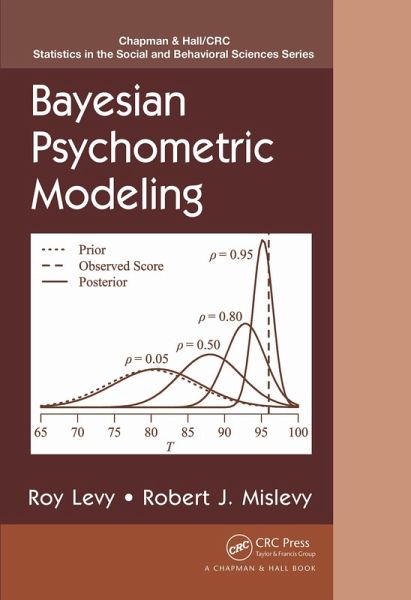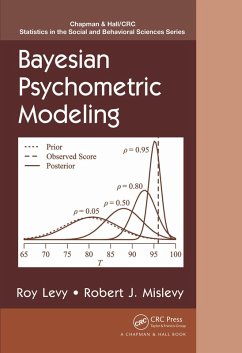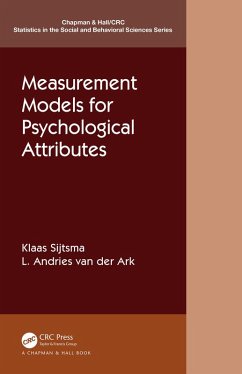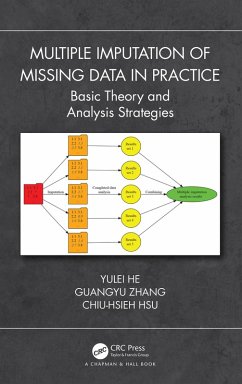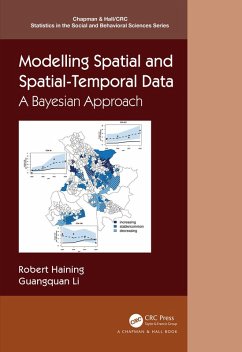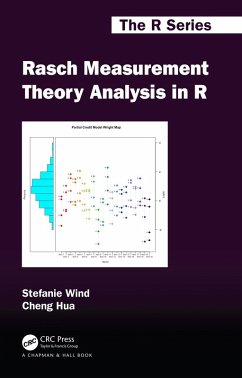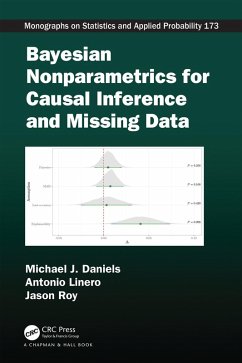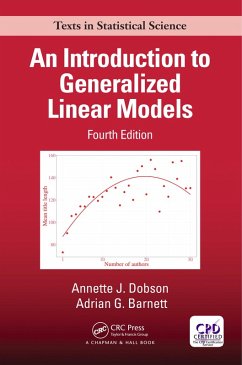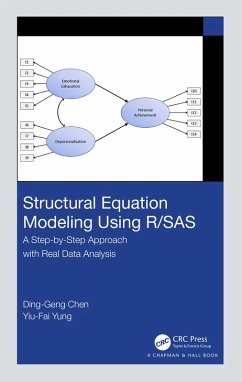"One true asset of this book is the impeccable organization. The topics build upon one another nicely, with the most basic of models (i.e., the true score model) presented first. The flow of the chapters was well designed, with model complexity increasing steadily through the topics. The authors introduced latent variable modeling using continuous latent variables (e.g., confirmatory factor analysis and item response theory). Then, they extended this idea into the incorporation of categorical latent variables (e.g., latent class modeling and Bayes networks). Within each chapter, the most common priors were presented and described for each model. The description and illustration of implementing priors for continuous and categorical latent
variable models were done particularly well...The authors successfully incorporated examples throughout the entire text. These examples were quite detailed and included everything from model specification, annotated software syntax, diagnostics, results, and interpretation. Many examples use publicly available data. Not only does this feature make replication possible for the results, but it is also an added benefit for students using this as a course textbook. One could easily walk through the steps in this book and conduct analyses from all of the model-based chapters included...Given the strong emphasis on examples and detailed descriptions throughout the book, we highly recommend this as a textbook for graduate-level courses on Bayesian statistics or psychometrics. The authors effectively balanced the content regarding general Bayesian inference and specific psychometric models. Therefore, the book can be used as either the main text for a standalone course on Bayesian psychometrics or as supplementary reading for a course focusing on a particular model (e.g., factor analysis)."
-Sarah Depaoli and Yang Liu in
Psychometrika, June 2018
"This book is a great contribution to the field of Bayesian psychometrics. It provides an excellent introduction to the Bayesian statistical philosophy and the Bayesian way of thinking, with a focus on building statistical models for psychometric analysis. In a clear manner, it describes how Bayesian theory can be used to construct psychometric models and carry out statistical analysis, whilst explaining how to integrate prior knowledge into analysis. It also shows the various profound advantages of the Bayesian approach, and presents a comprehensive toolbox for psychometric data analysis, as opposed to conventional approaches.
This book is highly recommended for graduate students and (applied) researchers, who have a basic understanding of psychometric and statistical theory. The second part of the book contains a wide overview of different psychometric models and theories such as classical test theory, item response theory, latent class analysis, and Bayesian networks. A clear and consistent Bayesian approach introduces these different topics, which are illustrated with educational assessment applications. In addition to several programs in R, the WinBUGS program is also utilised to perform computations, making it possible to directly apply the presented material. Overall, this book provides a thorough and comprehensive overview of psychometric modelling, and truly promotes the use of Bayesian methods."
-
Jean-Paul Fox, Department of Research Methodology, Measurement and Data Analysis, University of Twente
"Drs. Roy Levy and Robert Mislevy have made several pioneering contributions on the application of Bayesian statistical analysis to educational and psychological measurements, and have now brought their expertise to life in the accessible, up-to-date, and comprehensive book
Bayesian Psychometric Modeling. This is a must-read for researchers and practitioners of all levels, from undergraduate students of Psychology or Education to experts on Bayesian psychometrics. A unique aspect of the book is its descriptions of the connections between Bayesian modelling and topics such as evidence-centred design and graphical models, which are the authors' forte. This book provokes the reader into thinking deeper about the topic and is destined to become a classic for those who are interested in the area."
-
Sandip Sinharay, Principal Research Scientist, Educational Testing Service (ETS)
"The last couple of decades has seen a widening of the gap between psychometrics as taught in textbooks and psychometrics as practiced in industry-leading agencies, with the latter expanding rapidly due to increasingly sophisticated assessment needs and increasingly accessible computational power.
Bayesian Psychometric Modeling helps to close this gap, using a model-based and evidentiary reasoning perspective to frame psychometrics as part of a larger landscape methodologically, statistically, computationally, and philosophically. Levy and Mislevy are that rare combination of outstanding scholars and teachers, and it comes through beautifully in their exemplary treatments of not just standard topics like classical test theory and item response theory, but also of Bayesian inference, graph theory, MCMC estimation, model evaluation, confirmatory factor analysis, multidimensional IRT models, latent class analysis, and Bayesian networks. Truly modern psychometrics demands flexible and integrated thinking, and analytical frameworks to match. This book embodies such thinking and analysis, representing where the leaders are and where the rest of us should be going. And it helps us to get there."
-
Gregory R. Hancock, Professor and Program Director of Measurement, Statistics and Evaluation, University of Maryland
"This book is excellent; it is the most comprehensive and up-to-date resource for researchers who are studying, or would like to know more about, Bayesian approaches for psychometric and statistical models. It thoroughly covers simple to advanced topics on psychometric models with mathematical and underlying psychometric concepts, with clear illustrations on a wide range of applications using real data in the psychometric field. Not only useful for its theoretical aspects on Bayesian approaches, the technical parts of this text (e.g., annotated software codes that can be easily modified) are also illustrated in an accessible manner for students, applied statisticians, and psychometricians who may want to apply these techniques to their own problems. If you want to use or find out more about Bayesian psychometric approaches, whether it be those at the simplest level or those at the cutting-edge of theoretical research and practical application, then this is the book for you!"
-
Jaehwa Choi, Assessment, Testing, and Measurement Program, The George Washington University
"I can honestly say that the book
Bayesian Psychometric Modeling by Roy Levy and Robert Mislevy represents a tremendous amount of effort, dedication, and care in the service of rigorous professional development for colleagues who need to educate themselves on principled evidentiary reasoning using Bayesian methodologies. While reading, I was constantly amazed how I was (re)learning both foundational and complex statistical concepts while almost "incidentally" expanding my intellectual horizon through reflection on core principles of evidentiary reasoning. Throughout the book, the intellectual thoughtfulness of the authors shines through in innumerable ways, especially in the way they express ideas and structure the presentation of information. They utilize a broad array of diverse representations (textual descriptions, examples, and anecdotes along with formulas, tables, graphics, and code) that are well-suited for their communicative function, often in interesting novel ways that provide true insight into a phenomenon. Thus, rather than serving as just a vehicle for learning about best statistical practices in Bayesian modeling, the book can really serve to develop intellectual stewardship for future voices in educational measurement that transcends this transcends this particular intellectual domain."
-
André A. Rupp, Educational Testing Service (ETS)
"This book covers a range of models and ideas in psychometrics and should be of interest to many students and researchers."
-
Andrew Gelman, Departments of Statistics and Political Science, Columbia University
